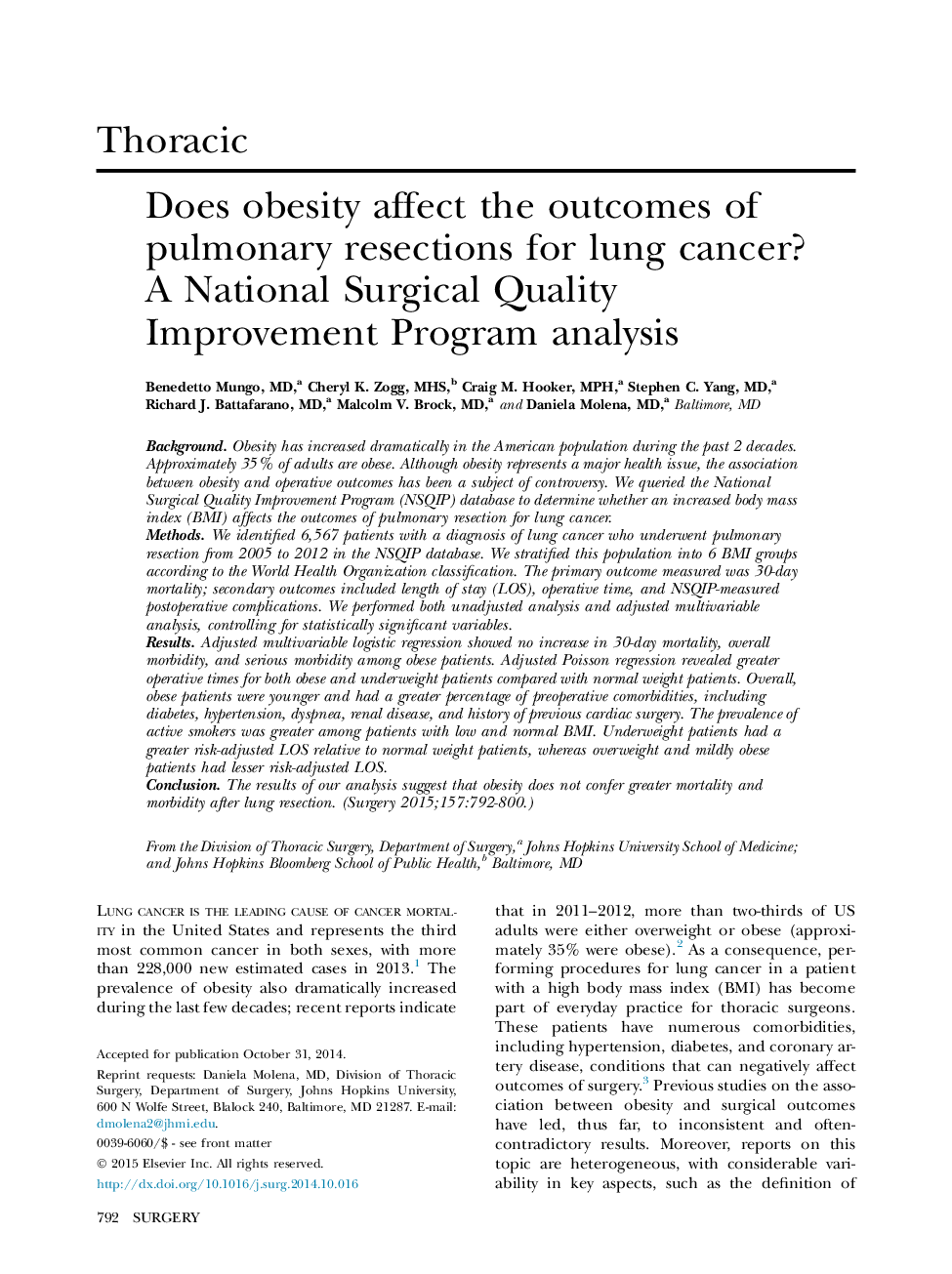| کد مقاله | کد نشریه | سال انتشار | مقاله انگلیسی | نسخه تمام متن |
|---|---|---|---|---|
| 4307187 | 1289240 | 2015 | 9 صفحه PDF | دانلود رایگان |
BackgroundObesity has increased dramatically in the American population during the past 2 decades. Approximately 35% of adults are obese. Although obesity represents a major health issue, the association between obesity and operative outcomes has been a subject of controversy. We queried the National Surgical Quality Improvement Program (NSQIP) database to determine whether an increased body mass index (BMI) affects the outcomes of pulmonary resection for lung cancer.MethodsWe identified 6,567 patients with a diagnosis of lung cancer who underwent pulmonary resection from 2005 to 2012 in the NSQIP database. We stratified this population into 6 BMI groups according to the World Health Organization classification. The primary outcome measured was 30-day mortality; secondary outcomes included length of stay (LOS), operative time, and NSQIP-measured postoperative complications. We performed both unadjusted analysis and adjusted multivariable analysis, controlling for statistically significant variables.ResultsAdjusted multivariable logistic regression showed no increase in 30-day mortality, overall morbidity, and serious morbidity among obese patients. Adjusted Poisson regression revealed greater operative times for both obese and underweight patients compared with normal weight patients. Overall, obese patients were younger and had a greater percentage of preoperative comorbidities, including diabetes, hypertension, dyspnea, renal disease, and history of previous cardiac surgery. The prevalence of active smokers was greater among patients with low and normal BMI. Underweight patients had a greater risk-adjusted LOS relative to normal weight patients, whereas overweight and mildly obese patients had lesser risk-adjusted LOS.ConclusionThe results of our analysis suggest that obesity does not confer greater mortality and morbidity after lung resection.
Journal: Surgery - Volume 157, Issue 4, April 2015, Pages 792–800
